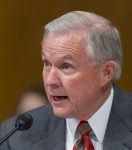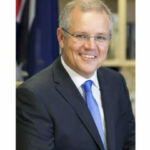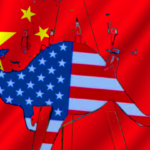“Good People Don’t Smoke Marijuana”: New US Chief Lawyer an Obstacle to Reform

US President Donald Trump has named Jeff Sessions as the US Attorney General, the chief lawyer and prosecutor for the federal government.
There are concerns Mr Session’s appointment will mean the end of proposals designed to reduce the US prison population through drug decriminalisation and a greater focus on prevention and diversion, and that the shift will be influential beyond US borders.
Who is Jeff Sessions?
Mr Sessions is a strong advocate for a punitive criminal justice system who has been dogged by accusations of bigotry and racism his entire career. He was ranked by the National Journal in 2007 as the fifth-most-conservative US Senator.
The Alabama senator became the first federal elected official to endorse Trump’s presidential campaign in February 2016. Mr Sessions’ close ties to Trump have raised concerns that he will not act independently to safeguard constitutional rights and the rule of law, as is required by the role of Attorney General.
With his confirmation, Sessions takes over a justice department already plagued by drama since Trump took the oath of office. The new president fired the acting attorney general, Sally Yates, after she refused to enforce his executive order banning entry to the United States of people from seven Muslim-majority countries.
Jeff Sessions on Race
In 1986, Ronald Reagan nominated Sessions, then a US district attorney, to a federal judgeship. Sessions’ confirmation hearing failed to make it out of committee, an extremely rare occurrence, after concerns about his racist views.
In those hearings, J Gerald Hebert, a former justice department civil rights attorney who worked with Sessions in Alabama, testified that Sessions had dismissed organisations such as the NAACP and the ACLU as “un-American” and suggested a white civil rights attorney was a race traitor for taking on a voting equality case in Alabama during the 1980s.
Senators also heard that Sessions had referred to a black official in his US attorney’s office as “boy” and told him to be careful about what he said to white people. Sessions denied this, but has admitted to having once said he admired the KKK until he found out they smoked marijuana. He later called that comment a joke
Sessions has also been accused of calling a black official in Alabama the ‘n-word’, and then lying to the US Senate when testifying about the allegation. When asked about the incident by Joe Biden, then a senator for Delaware, Sessions said, “There was not a black county commissioner at the time. The black was only elected later.” This was despite the subject of the racial slur, Douglas Wicks, having been elected more than a year before Sessions used the term.
Trump team’s press release claimed that Sessions had been endorsed by both “civil rights and law enforcement groups”. But the only purported civil rights group mentioned was the Black American Leadership Alliance, a right-wing group whose leadership has ties to an anti-immigration campaign network that was declared a hate group by the Southern Poverty Law Center.
Jeff Sessions and Criminal Justice Reform
Another major issue with the appointment of Sessions the obstacle he presents to criminal justice reform.
Sessions strongly opposes the planned reduction in the US prison population, an initiative commenced by the Obama administration.
“The wise approach is to slow down and evaluate the trends before accelerating prison population decline,” Sessions said in opposition to a bipartisan sentencing reform bill that would have decreased mandatory minimum sentencing. Indeed, Sessions has expressed particular disdain for moves to decriminalise cannabis and reduce penalties for non-violent drug offences.
Sessions has remarked, “Good people don’t smoke marijuana”, denouncing former president Obama for liberalising drug laws. “I think one of [Obama’s] great failures, it’s obvious to me, is his lax treatment in comments on marijuana,” Sessions declared. “It reverses 20 years almost of hostility to drugs that began really when Nancy Reagan started ‘Just Say No”.
Recent polls suggest that around 60% of Americans approve the legalisation of cannabis, while a majority across all parties believe the federal government should not interfere with state voters when it comes to marijuana laws.
Influence Abroad
Closer to home, there are concerns the views and policies advanced by America’s chief lawyer and law enforcement officer will influence the direction of countries such as Australia which look to the US as a world leader.
And with the rise of domestic right wing politics including the One Nation Party and breakaway politicians – which generally advocate for a move towards totalitarianism and punitive criminal justice measures – Session’s appointment may indirectly influence policies which are adopted here, which will do nothing to address issues such as prison overcrowding and reducing crime through the implementation of preventative and diversionary programs that have been proven to lower crime rates.







